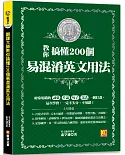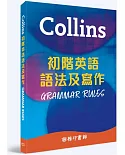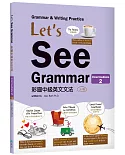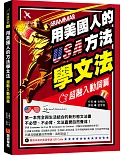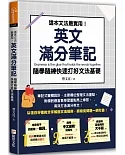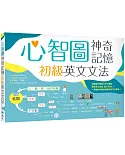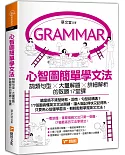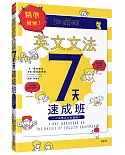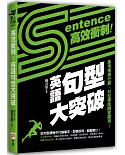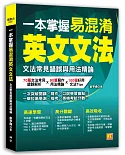Chapter 1
1. 打招呼
1.take care of yourself / take care of your body 好好照顧身體
2.Excuse me! / I,m sorry! 不好意思 / 對不起
3.Good evening! / Good night! 晚安
4.Nice to meet you / Nice to see you 很高興認識你 / 很高興再次見到你
2. 消費
1. go shopping / go to shopping 逛街
2. by / in 支付
3. pay someone off / pay off 付了薪水後將某人解雇 / 付清
3. 聊天打屁
1. free time / time to play 空閒
2. live / stay 住 / 停留
3. is a famous …/ is famous for 有名 / 以…聞名於世
4. good at / good for 擅長 / 對…有益
5. live on / live by 以…為主食 / 以…營生
6. lose heart/ lose one,s heart 喪失信心 / 愛上了
4. 意外傷害
1.had a big impact on / gave an impact on 造成很大的衝擊
2.serious illness / heavy illness 重病
3.crash into / bump into 撞上
4.watch out / dangerous 小心
5.in an accident / by accident 在一場意外 / 不小心
6.be in hospital / be in a hospital 住院 / 在醫院裡
7.in that case / in case要是那樣的話… / 以免、免得
8.injured / wounded 受傷
9.died of / died in 死於 / 死亡
10.make a fire / catch fire 生火 / 失火
11.on fire / fire away 失火 / 快發問
12.broke out / broke up 爆發 / 分手
Chapter 2 職場中最易犯錯的句子
5. 寒暄
1.thank you for / thank you to 謝謝 / 幸虧
2.What brought you to…? / Why did you come to…?
什麼風把你吹來? / 你到…來做什麼?
3.taken / empty 佔用了 / 空的
4.Yes,please. / Yes, sure. 好的 / 當然可以
5.in the way / in this way 擋住路了 / 這種方式
6. 噢喔!抱歉!
1.a big mistake / a large mistake 極大的錯誤 / 正確的
2.correct / right 正確的 / 正確的
3.by mistake / by accident 僥倖 / 誤認
7. 容易混淆的代名詞
1.another / the other 另一瓶 / 另一個
2.each other / one another 彼此 / 互相
3.the others / others 其餘 / 別人
8. 知道、認為
1.know a lot / know well 懂得很多 / 熟悉 -
2.be afraid / think 恐怕 / 認為
3.learn of / know of 得知 / 知道
4.What do you think / How do you think 有什麼看法 / 覺得如何
5.make sense /make sense of 合理 / 了解
6.pay attention to/notice 關注 / 注意
7.believe/ believe in 相信 / 信仰、有信心
Chapter 3 旅行中最易犯錯的句子
9.交通與旅行
1.go abroad / go to abroad 出國
2.get to / go to 到達 / 去
3.to / for 去
4.in sb's car / by car 搭某人的車 / 搭車
5.on board / on the board 機上 / 委員會
6.reach / land at 登陸 / 降落
10. 方向的界詞
1.from the east / in the east 從東邊升起
2.nearby / near 附近 / 較近的
3.through / from 通過某處進入 / 從某地出發
4.inside / inside of 某處裡面 / 某地內部
5.in front of / before 前面 / 在…之前
6.within…of / within…from 離不到
7.in the direction of / to the direction of 往某個方向去
8.on the wall / in the wall 牆上的 / 藏在牆上的
Chapter 4 描述中最易犯錯的句子
11.人物特寫
1.baby girls / girl babies 小女兒
2.middle-aged / middle-age 中年人(形) / 中年人 (名)
3.elderly / old 老年
4.medium / middle 中等 / 一半
5.familiar with / familiar to 通曉 / 熟悉
6.compare…to / compare…with 比擬 / 比較
12. 身體特徵
1.big nose / high nose 鼻子很高
2.arm / hand 手臂 / 手掌
3.feet / leg 腳掌 / 小腿
4.back / waist 腰、背 / 腰部
5.dark eyes / black eyes 眼睛顏色較深 / 黑眼圈
Chapter 5 時間陳述中最易犯錯的句子
13. 時光飛逝
1.this summer / in this summer 今年夏天
2.last summer / summer last year 去年夏天
3.last night / yesterday night 昨晚
4.for the first time / at first 初次 / 一開始
5.time / hour 時候 / 時刻
6.in the future / in future 未來 / 今後、從現在以後
7.sooner or later / day and night 早晚、遲早 / 不管白天或晚上
8.before long / long before 很快 / 早在…前
9.once again / once and again 再 / 一直
10.no longer / not anymore 不再 / 再也不
14. 關於時間的介詞
1.it lasts/its length is 長約
2.till / by 直到 / 在…以前
3.for / during 以來 / 在…內
4.from now on / from now 從現在起 / 從此以後
5.at once / all at once 立即 / 突然
6.for the present / at present 暫時 / 目前
7.at last / at least 最後 / 至少、起碼
8.for a moment / at the moment一會兒、片刻 / 此時此刻
9.in time / on time 及時 / 準時
10.between…and…/ between…to… 從…至
11.on the morning / in the morning 在…早晨 / 早上
12.go on/ keep on 繼續 / 一直
13.the other day / another day 不久前 / 改天
14.used to / be used to 以前 / 習慣
15.as usual / usually如同往常 / 通常
Chapter 6 動作中最易犯錯的句子
15. 遇到不幸
1.left / forgot 把某樣東西遺忘在某處
2.use / borrow 借用 / 借
3.hit / attacked 侵襲 / 攻擊
4.knock on / knock down 敲門 / 撞倒了
5.give in / give up 讓步 / 放棄
6.run out of / run out 用完了 / 使用殆盡
7.stop to do 停下來去做某事 / stop doing 停止工作
8.struggling for / struggle against 奮鬥 / 對抗
16. 整理收納
1.put out / put up 晾衣服
2.put away / throw away 保存 / 丟掉
3.send out / send up 寄 / 發射
4.tear down / tear off 拆除 / 撕下
17. 在工作場合中
1.persist in / insist on 堅持
2.in charge of / in the charge of 負責 / 擔負
3.made of / made up of 製成 / 組成
4.set an example/ made an example of 樹立榜樣 / 殺雞儆猴
5.satisfied with / satisfied to 滿意
18. 穿著打扮
1.put on / wear 戴上 / 穿戴
2.take / carry 帶走 / 提著
Chapter 7 肢體語言最易犯錯的句子
19. 比手畫腳
1.divide into / divide up 分成
2.pick up / pick out 接 / 挑選
3.point at / point to 指著
4.put up / put out 舉起 / 撲滅
5.show up / show off 現身 / 炫耀
6.carry on / carry out 繼續 / 兌現
20. 眼觀四方
1.stare at / glare at 盯著 / 怒視
2.look for / found 找尋 / 找到了
3.look up to / look up 尊敬 / 查
4.loose one,s sight / lose sight of 失明 / 消失
5.see off / set off 送行 / 出發
21.悠悠之口
1.have words with / have a word with 爭執 / 說幾句話
2.make a promise / keep a promise 答應 / 履行承諾
3.mouth to mouth / from mouth to mouth 人工呼吸 / 口耳相傳
4.play a joke with / have a joke on 跟某人開玩笑 / 說笑話
5.shout at /shout to 破口大罵 / 大聲呼叫
22. 繪聲繪影
1.cramped / narrow 窄
2.at / in 在
3.funny / interesting 好笑的 / 很有趣
4.notorious / famous 惡名昭彰 / 聞名於世
5.slow / late 慢 / 晚
6.fall asleep / feel sleepy 睡著了 / 感覺想睡覺














